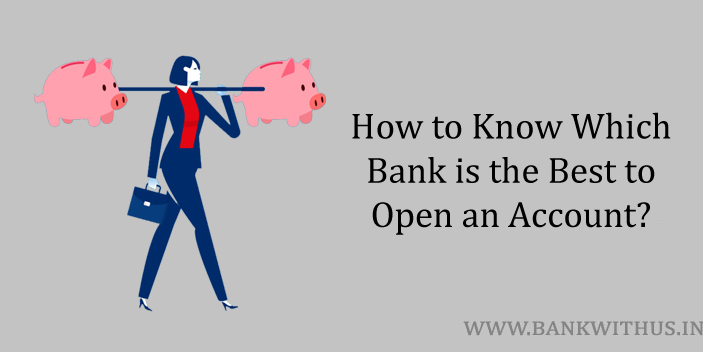Starting a relationship with a bank by opening an account may seem simple, but it can be complicated to terminate. Therefore, it is important to take the time to consider which bank you want to partner with before making a decision.
Figuring out which bank is the best to open an account for you can be a challenge. What matters most to you as an individual should be taken into consideration. Here are some key points to think about.
7 Tips to Choose a Bank for Opening an Account
-
Minimum Balance Criteria
Several banks even charge maintenance fees. This type of fee is meant to maintain your account, which means that your account should hold the minimum amount limit set by the bank, or you will be charged monthly fees. But nowadays, there are different zero-balance savings accounts that can save you from paying the hefty maintenance charges some accounts come with and even reduce the burden of service charges.
-
Interest Rate
The important feature that should make you think twice before opening an account in a bank in India is the determined interest rates on your deposits. Every bank offers an interest rate on the deposits you make and charges a certain amount for the overdrafts you make. So, keep in mind these things when deciding which is the best bank to open an account. Also, remember not to sacrifice your security and monetary safety in exchange for lower interest rates.
-
Fees and Services
Based on the private and public sectors, there are different product fees and services offered by banks. Some might charge you higher for the same kind of services and products. Hence, it’s important to keep a list prepared of all your available options.
Examine the terms and conditions to determine any charges associated with your account. Consider the cost of services that you plan to utilize often. For instance, investigate if international transfers incur a fee or if there are limitations on the number of free ATM withdrawals or online transactions allowed each month.
-
Online Availability
Since more and more banks are at your disposal online, you need to ensure that the bank you want to go forward with has an up-to-date digital presence and provides good digital banking services. At the very least, it should provide basic functions such as transferring funds, checking account balances, or providing services to open PPF and fixed deposits online. As most financial transactions are now done digitally, this is essential.
-
Safety of Funds
When you entrust your hard-earned money to a bank, safety is paramount. Whether you go for a fixed deposit or a savings bank account, you want to be sure that your funds are secure. Therefore, it’s advisable to place the bulk of your money with a large-sized bank that offers deposit insurance rather than a small cooperative bank that might give you a higher rate of interest and won’t give you the assurance you want.
-
Accessibility
Depending on your requirements, you may decide to choose a bank with better rates or online facilities if your banking is mainly done online and you don’t often need to deposit checks or cash. Conversely, if you are more comfortable dealing with a person or need to use these services regularly, look for one with a branch close by. If you travel a lot and need access to your bank in different locations, consider which bank has the widest branch network in the places you need it.
-
Additional Services
Banking doesn’t have to be limited to just the basics. Many banks provide additional services, such as credit cards and broking accounts, as well as advanced financial options like Demat services, online trading, insurance, mutual fund investments, and more. Private sector banks, in particular, tend to offer a wide range of services for their customers, though these may come with a fee. Consider your needs carefully before deciding which bank and services are best for you.
Bottom Line
Decide which features of a bank are important to you. Consider the distinct needs of salaried people, businessmen, and senior citizens before making your choice. Take time to research and compare the available options to know which is the best bank to open an account.
